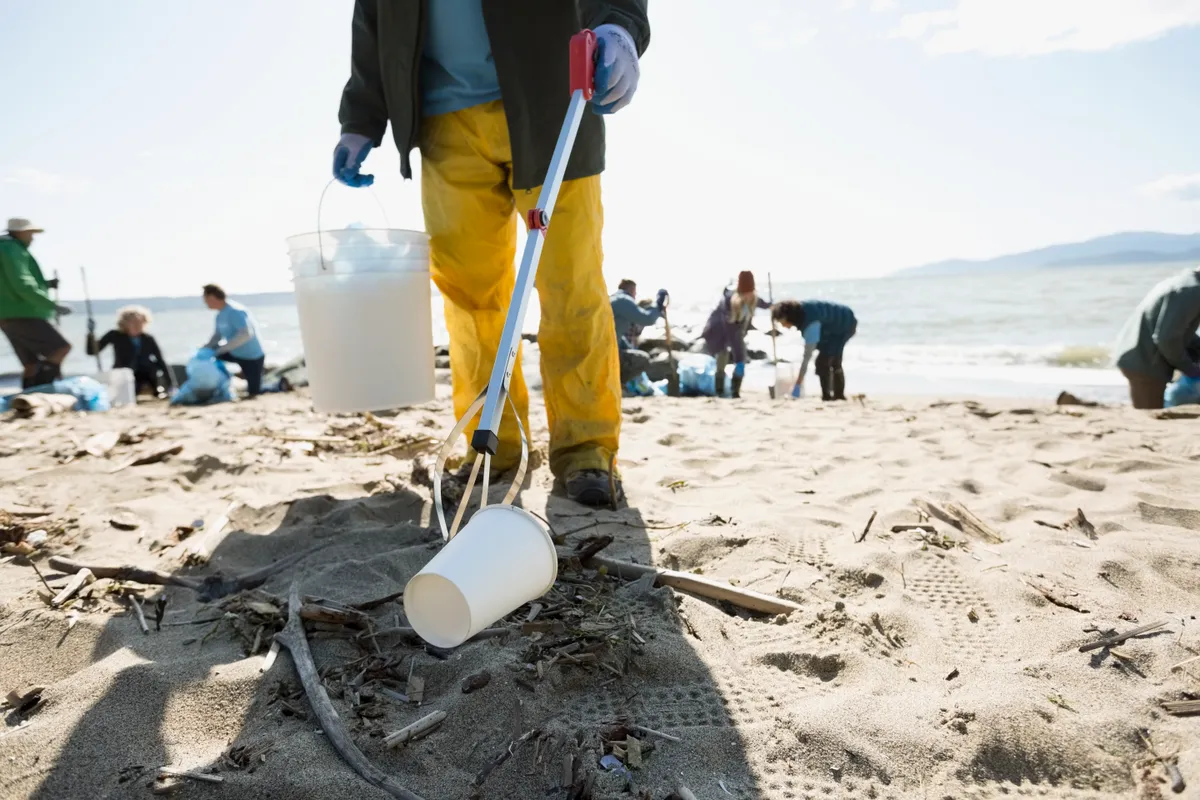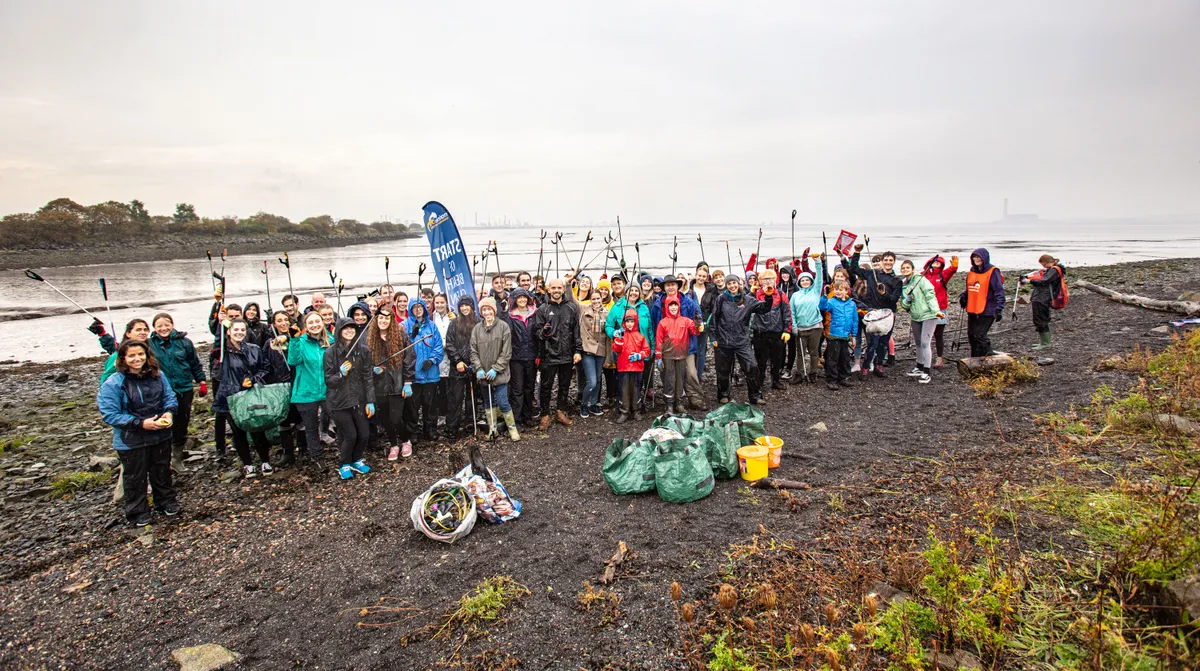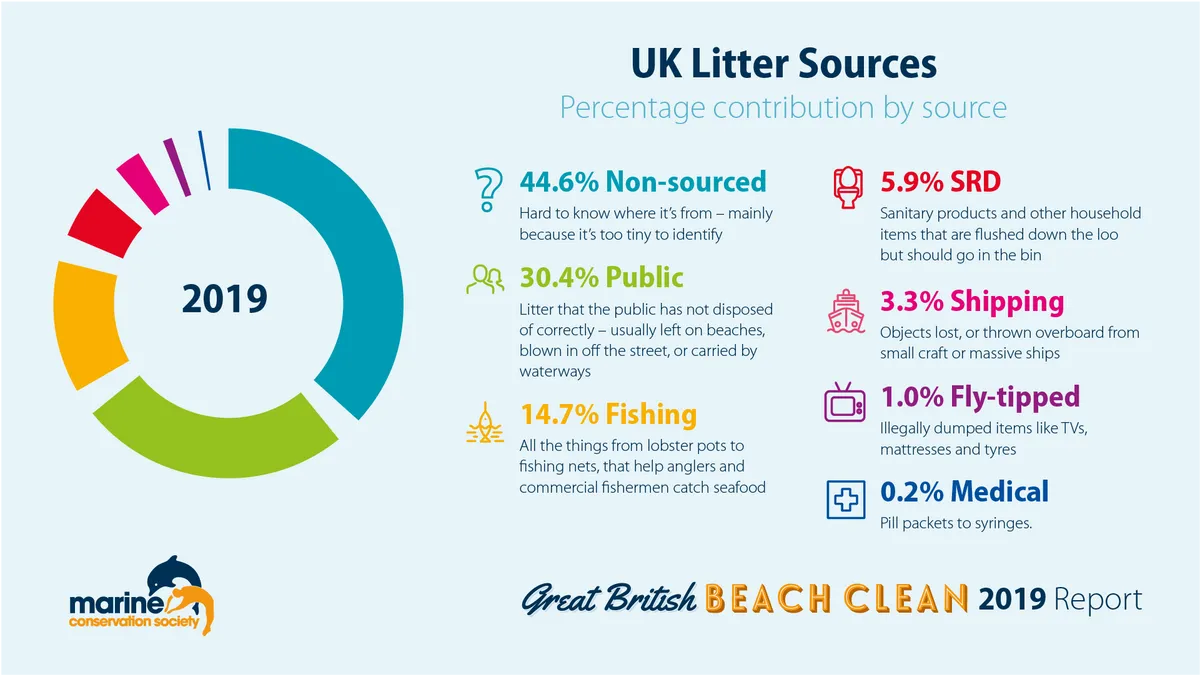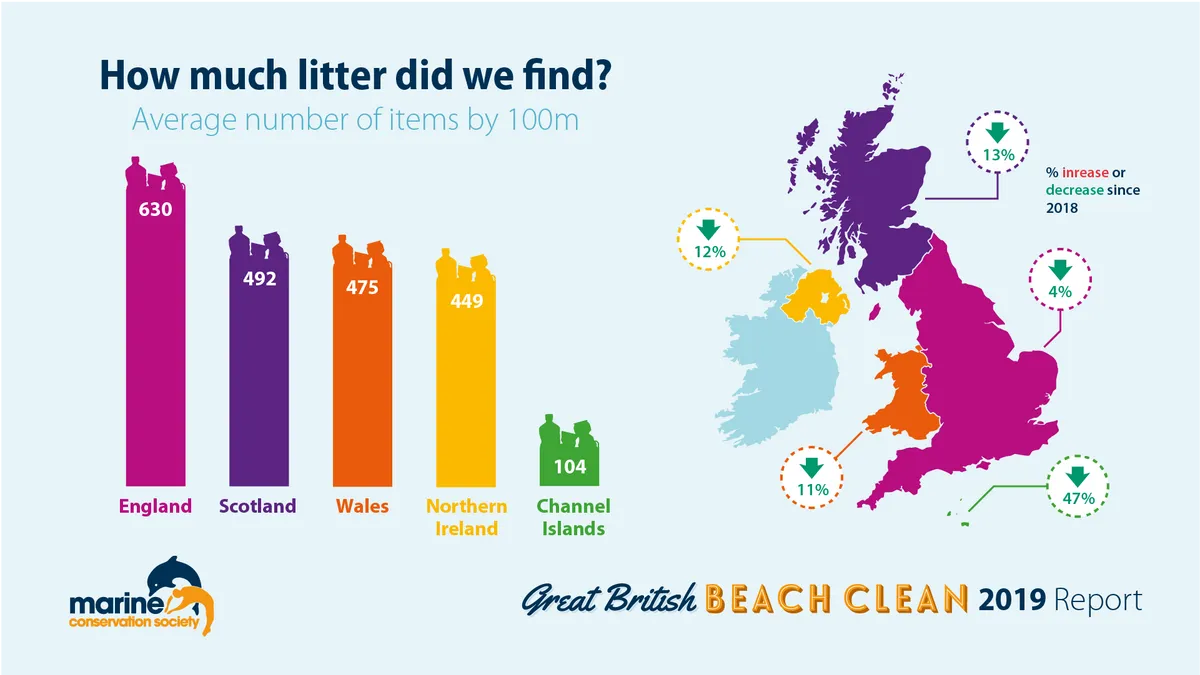Now in its 26th year, the Great British Beach Clean, run by the Marine Conservation Society (MSC), saw a total of 437 beaches across the UK cleaned between 20th and 23rd September.
The nationwide beach clean relies on volunteers to not only collect litter, but also record what they find. In doing so, they provide essential data on what is polluting the country’s beaches.

In this way, the Great British Beach Clean has proved itself to be a key tool in pushing for policies that improve the health of the environment, including the 5p carrier bag charge.

This year, over 10,800 volunteers participated, cleaning beaches from the Shetland Islands to Land’s End, and from Northern Ireland to the Channel Islands.
In one single weekend, a huge 10,833kg (almost 11 tonnes) of litter was removed from beaches across the country.
Plastic was the most prolific offender (143 per 100m of beach), with cigarette stubs and glass items coming in second and third respectively.
The five most common items found per 100m of UK beaches were:
- Plastic/polystyrene pieces (0-50cm) — 143 per 100m
- Cigarette stubs – 42.6 per 100m
- Glass items (other) – 33.4 per 100m
- Plastic/polystyrene string – 32.6 per 100m
- Packaging (crisps, sweets, lollies, and sandwiches) – 30.9 per 100m

Drinks containers were recorded in particularly high numbers, and were found in range of different materials including plastic, metal, and glass. During the beach clean weekend, over 16,000 drinks containers were recorded, including an average of four glass bottles for every 100m of beach cleaned.
In light of this data, the marine charity believes that the UK Government should implement an all-inclusive Deposit Return Scheme (DRS) as soon as possible. This type of scheme would reduce the build up of single-use plastic bottles along the coastlines, along with all other types of drinks containers, including glass bottles and cans.
Across the world, 40 counties already have a DRS in place, which has made a significant impact on the reduction of litter in these locations.
Great British Beach Clean 2019 in numbers:
- 437 beaches cleaned
- More than 10,800 volunteers
- 10,833kg of litter removed
- Over 16,000 drinks containers recorded
- 558 litter items found per 100m of beach cleaned

In the UK, the Scottish Government has committed to an all-inclusive DRS, although this doesn’t include glass. While recognising the benefits that such a scheme will bring, conservation organisations argue that more should still be done.
“It’s so important to ensure that we’re not taking our foot off the pedal to push the UK’s Governments to adopt all-inclusive DRS at the earliest possible opportunity,” commented Laura Foster, Head of Clean Seas. “The Scottish Government’s commitment to an all-inclusive DRS is a fantastic step in the right direction, but it must be designed to include all drinks containers and must not exclude glass.”
Though Scotland has shown positive change in this area, progress on the development of DRS for England and Wales has been frustratingly slow. The current Government has said that it would need to gather further evidence and undertake further consultations before implementing DRS.
Echoing the beliefs of MCS, Foster believes that it is imperative that no time should be wasted in putting a DRS in place across the UK: “Delaying the implementation of a DRS by a year would result in 50 million additional empty containers littering our beaches.”
Though the general election has delayed the implementation of a DRS further, Foster hopes that positive action will happen swiftly in the aftermath: “DRS should be one of the first policies implemented following the upcoming general election to protect our environment and kick-start behaviour change.”
Although there still remains a lot of work to be done to minimise litter across the country, this year's beach clean saw a reduction in litter found on beaches: England had the highest litter density, with a 4% decrease overall since 2018; Scotland had the second highest litter density, with a 12% decrease on last year; Wales showed a 10% decline on since year; Northern Ireland had the second lowest litter density, with a 12 % decrease since 2018; The Channel Islands had the lowest litter density, with an impressive 38% decrease since last year.
